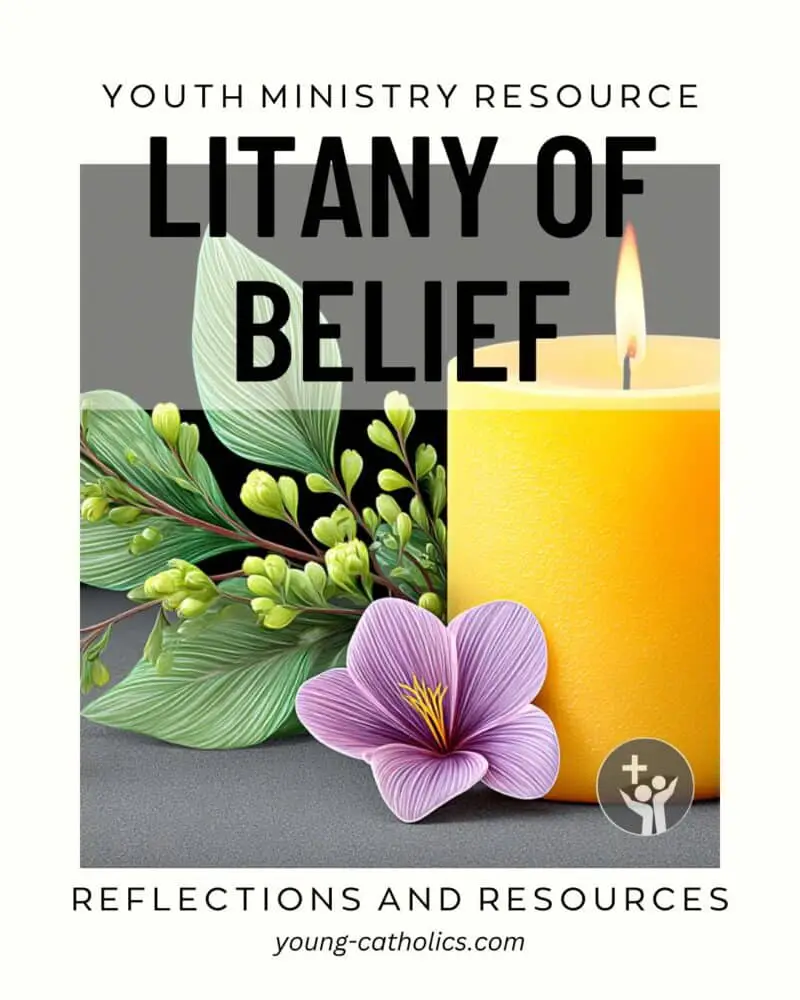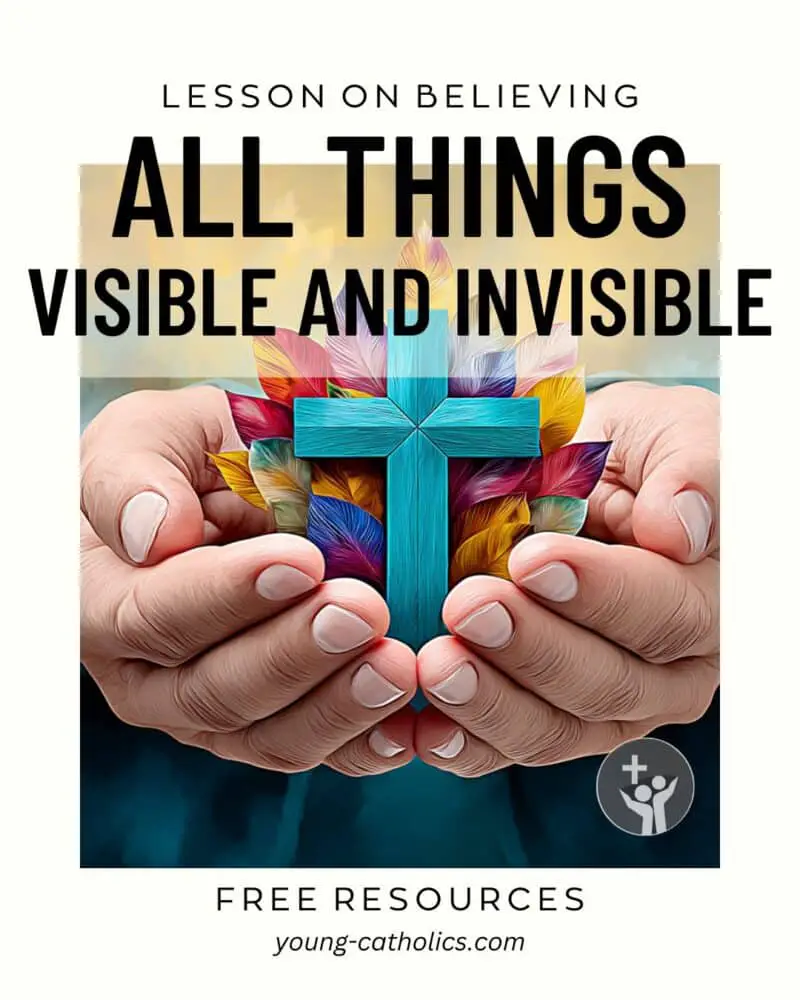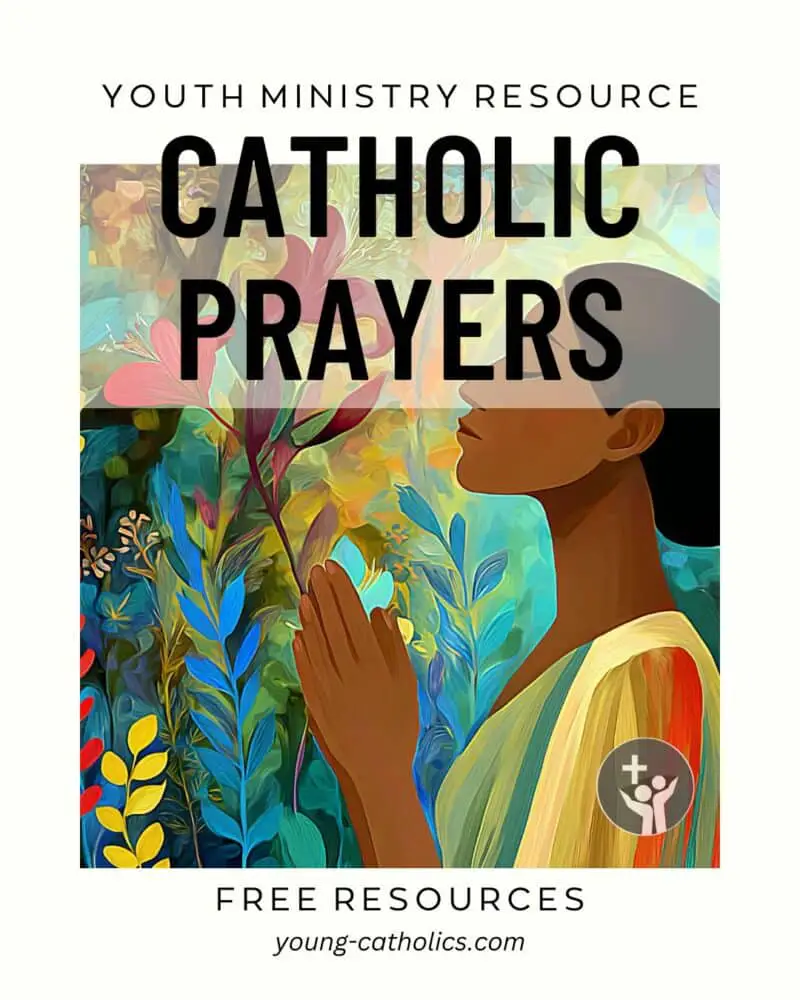Litany of Belief

The Litany of Belief is a prayer that invites us to reflect on our faith and trust in God, even in moments of doubt or struggle. It draws inspiration from two key moments in the Gospels: the father’s plea for help in Mark 9:24 and Thomas’s declaration of faith in John 20:28. These passages remind us that belief is not always easy, but God meets us where we are and strengthens us.
This prayer is designed to be simple and repetitive, which helps us focus and pray together as a group. Each line asks for God’s help in specific moments of weakness or uncertainty. The repeated responses, “I do believe, help my unbelief” and “My Lord and my God,” connect us to the honesty and trust of those who turned to Jesus for help.
The Litany of Belief is especially meaningful during times when we feel unsure or distant from God. It reminds us that it is normal to face doubts and challenges in our faith. By praying this litany, we open our hearts to trust God more deeply and rely on His presence in our lives.
This prayer is also fitting for special occasions, such as Divine Mercy Sunday, when we reflect on the story of “Doubting Thomas.” It can be used in youth ministry, small group gatherings, or personal prayer to encourage honest conversations about faith and belief.
A Prayer with a Rhythm
Litanies are a type of prayer that have been used in the Church for centuries. They are known for their repeated responses and rhythmic structure. This format makes them easy to follow, especially when prayed as a group. Litanies are often used to ask for help, express gratitude, or reflect on different aspects of God’s love and mercy.
The word “litany” comes from a Greek word that means “prayer” or “supplication.” Early Christians used litanies in public worship and processions. Over time, different litanies were written for specific purposes.
The Litany of Belief follows this same format. Each line offers a specific request or statement, followed by a repeated response. In this case, the responses reflect trust and faith, even in times of doubt or fear. This makes it an excellent prayer for anyone seeking to strengthen their belief.
The repetitive nature of litanies is intentional. It encourages reflection and helps us focus on the meaning of the words. Whether prayed alone or in a group, litanies offer a way to connect with God and one another through simple, repeated prayer.
Connecting Faith and Doubt
The Litany of Belief connects directly to two moments in Scripture. The father in Mark 9:24 cries out, “I do believe, help my unbelief,” showing that faith can exist even with doubt. Similarly, Thomas’s words in John 20:28, “My Lord and my God,” express the depth of belief that can come after questioning. These stories show us that doubt and faith often go hand in hand.
This theme is reflected in the Catechism of the Catholic Church, which teaches: “Faith seeks understanding” (CCC 158). Even when we face questions or struggles, faith leads us to seek God more deeply. This litany gives us a way to do that, helping us name our doubts while asking for God’s help to believe.
In youth ministry, this prayer helps young people explore their faith honestly. Many teenagers and young adults face moments of doubt or confusion. The Litany of Belief reassures them that doubt is a natural part of faith and not something to fear. It connects them to Scripture and Church teaching, reminding them that belief grows stronger when they turn to God in prayer.
The repetitive format of the litany also enhances prayer. It creates a reflective atmosphere that invites young people to focus on their relationship with God. Praying it together as a group fosters community, showing them they are not alone in their struggles and that God is always near to help them believe.
The Litany of Belief
Lord have mercy … Lord have mercy.
Christ have mercy … Christ have mercy.
Lord have mercy … Lord have mercy.
When I am overcome with doubt … I do believe, help my unbelief.
When I don’t think you are near … I do believe, help my unbelief.
When I want to trust but can’t … I do believe, help my unbelief.
When I feel too sinful for your mercy … I do believe, help my unbelief.
When the road is too dark … I do believe, help my unbelief.
When I fear where you are leading me … I do believe, help my unbelief.
When my faith falters … I do believe, help my unbelief.
You are my hope … My Lord and my God.
You hold me close … My Lord and my God.
You take my hand … My Lord and my God.
You heal my wounds … My Lord and my God.
You are my light … My Lord and my God.
You are my courage … My Lord and my God.
You are my salvation … My Lord and my God.
Hear this prayer of my heart O Lord. Amen.
More Resources

All Things Visible and Invisible – A Lesson Plan on Believing
The “All Things Visible and Invisible” lesson plan focuses on the story of Thomas in John 20:19-31, where he struggles to believe in Jesus’ resurrection without physical proof.
This lesson helps youth understand that doubt is a natural part of faith and that seeking answers can lead to a deeper belief. It emphasizes that Jesus meets us in our doubts, offering patience and understanding, just as He did with Thomas.
This litany complements this lesson by providing a structured prayer that acknowledges moments of doubt and asks for God’s help to strengthen faith. By repeating phrases like “I do believe, help my unbelief,” individuals can express their struggles and trust in God’s support.
Incorporating this litany into the lesson plan can enhance the exploration of belief and doubt, offering a practical tool for youth to connect with God during their faith journey.

More Catholic Prayers
If you are looking for more ways to grow in your prayer life, visit our Catholic Prayers page. You will find a wide variety of prayers for many situations. There are traditional prayers like the Hail Mary and Our Father, as well as prayers for special occasions, needs, and devotions.
Whether you are searching for a new prayer to include in your daily routine or something for a specific moment, the Catholic Prayers page has many options. Explore the collection and discover prayers to help deepen your connection with God.
Social Media Graphics and Bulletin Artwork
Light of Trust

Share this peaceful image to inspire prayer and reflection in your parish or ministry. Perfect for bulletins, newsletters, and worship materials, it reminds us that God’s light shines in every moment, even in times of doubt.
This artwork is available for download to help you bring a message of hope and faith to your community.
Paid subscribers may download a large copy this digital artwork without watermarks, suitable for use in bulletins, social media, newsletters, etc., free of charge by clicking here. You must be logged in as a paid subscriber to access the file.
Only current paid subscribers have the rights to use the artwork.
Questions and Answers
What is the Litany of Belief?
It is a prayer that helps us reflect on faith and trust in God. It uses repeated responses like “I do believe, help my unbelief” and “My Lord and my God” to guide us through moments of doubt and belief.
Where does the Litany of Belief come from?
This original prayer by Young Catholics is based on two Bible stories. One is from Mark 9:24, where a father asks Jesus to help his unbelief. The other is from John 20:28, where Thomas declares his faith by saying, “My Lord and my God.”
How do you pray the Litany of Belief?
The prayer is usually led by one person who says the first part of each line. Everyone else responds with the repeated phrases. It can be prayed alone or in a group. The repetition makes it easy to follow and meaningful to pray.
When is the Litany of Belief especially appropriate?
This litany is helpful during times of doubt or struggle in faith. It is also meaningful on Divine Mercy Sunday, when we remember the story of Thomas and his journey to belief. It works well in youth ministry or any lesson on faith and trust.
How does the Litany of Belief help with doubt?
It encourages us to bring our doubts to God in prayer. It reminds us that doubting doesn’t mean losing faith. Instead, it is a chance to ask for God’s help and grow stronger in belief.
Can the Litany of Belief be used with youth groups?
Yes, it is great for youth groups. It creates a space to talk about faith and doubt honestly. It also shows young people that they are not alone in their struggles and that God listens to their prayers.
A Prayer for Faith and Trust
The Litany of Belief is a prayer that helps us grow in faith, even when we face doubt. It uses repeated responses, “I do believe, help my unbelief” and “My Lord and my God,” inspired by stories from the Gospels. These phrases remind us to turn to God in trust, just as the father in Mark 9:24 and Thomas in John 20:28 did.
This prayer is simple and structured, making it easy to use alone or in a group. Each line addresses a moment of challenge or fear, asking for God’s help and guidance. The repeated responses create a rhythm that encourages focus and reflection. The Litany of Belief is especially helpful during difficult times or when reflecting on themes of faith and trust.
The Litany of Belief is perfect for youth ministry, catechesis, or personal prayer. It offers a way to connect Scripture with daily struggles, making it a meaningful tool for growing closer to God. It reassures us that doubt is part of the journey and that God is always present to help us believe.
Your Turn
Have you prayed the Litany of Belief? We’d love to hear about your experience. Did it help you during a time of doubt or strengthen your faith in some way? Share your thoughts in the comment section below. Your story could inspire someone else to give this prayer a try.
If you haven’t prayed the Litany of Belief yet, take a moment to reflect on it today. Whether you’re praying alone or with others, this prayer can help you trust God more fully in moments of uncertainty. Afterward, let us know how it touched your faith journey. We look forward to reading your comments!


Leave a Reply